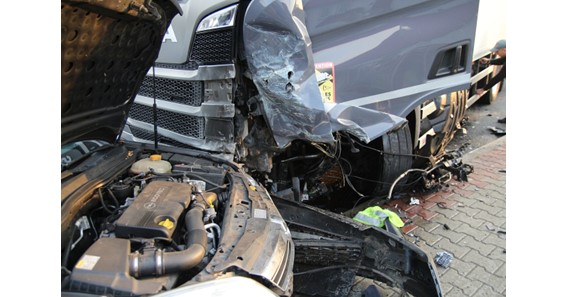It is common for things to get a bit heated between the drivers after an accident. This can lead to confrontation, aggression, and mistakes that drivers tend to regret later. One of these mistakes is not sharing or gathering information with the other drivers involved in the accident. Gathering the right information would allow you to pursue a claim or lawsuit against the responsible party. In some cases, the drivers are not sure what information should be shared. You can continue reading to learn how to handle your interactions with the other parties involved in the car accident and what information you should exchange with them.
What Information to Exchange With the Other Driver After the Crash
Contact Information
After the accident, you should gather basic information about the other driver’s identity and how you would be able to reach them for further queries. You should get the full name of the other drivers and check if they are willing to share their home addresses with you. You can also request them to see their vehicle registration or driver’s license; however not all drivers will agree to this. Checking these documents helps ensure that the person involved in the accident is also the owner of the vehicle or has the right to drive the vehicle.
In case the names given by the driver and the ones mentioned on the registration document or licenses are different, ensure to ask the driver how to reach the owner of the vehicle. For example, if the driver involved in the accident was an employee driving the company’s vehicle, you may have to pursue legal action against the company.
If there were any passengers involved in the accident, you could also get the names and contact information of these passengers because their statements can be useful for further legal proceedings.
Insurance and Vehicle Information
Getting insurance information is critical after a car accident. Even in no-fault states, you should try to get insurance information because it can be helpful if you end up with severe property damage or permanent injuries and have to take legal action against the other driver.
The insurance information you should collect from the other parties involved in the accident includes the insurance policy number, the name of the insurance provider or company, vehicle identification number, make and model of the vehicle, and the effective and expiry dates of the insurance policy.
You should also get the name of the insured that is on the insurance policy. Verify that name with the name on the driver’s ID card to ensure both names are the same. However, if the other driver involved in the accident does not have insurance to cover your damages, your auto insurance may cover them.
License Plate Number and Driver’s License
The license plate number is one of the things you should immediately note down after an accident. If you do not have something to write it down on, you can record or take a photo of the vehicle and its license plate number. This would help identify the vehicle even if they flee the scene of the accident.
Keep in mind that in many car accident cases, drivers can be uncooperative and get hostile. If you are dealing with such a driver, it is best to avoid further interaction and wait for law enforcement to arrive and obtain such information through investigation.
What if the Other Driver Flees the Scene?
If the other driver leaves the scene without stopping to check the condition of others involved in the accident and provide other parties with their contact and insurance information, it could count as a violation of the law.
Typically in such cases, the police can be alerted to locate the other driver and hold them accountable for such an act. Hit-and-run drivers can receive a ticket or be charged with a crime depending on the facts of the case.
If the accident caused you severe injuries and property damage, the hit-and-run driver can be sued. However, if a hit-and-run driver cannot be located, the victim may end up dealing with the costs of the accidents themselves.
What Happens If I Don’t Exchange Information?
Not exchanging information after an accident can have many disadvantages, especially if the other driver was responsible for your injuries. For example, if you do not have the other driver’s contact and insurance information following an accident, they could refuse to pay for your damages.
Click Here – Unveiling the Versatility of Braided Wigs
Not gathering sufficient information regarding the other driver can also hinder the process of filing an insurance claim or a personal injury lawsuit. A proper investigation may not be possible if critical information about the other driver is not obtained following the accident. This can lead to the blame being assigned to the wrong person.
